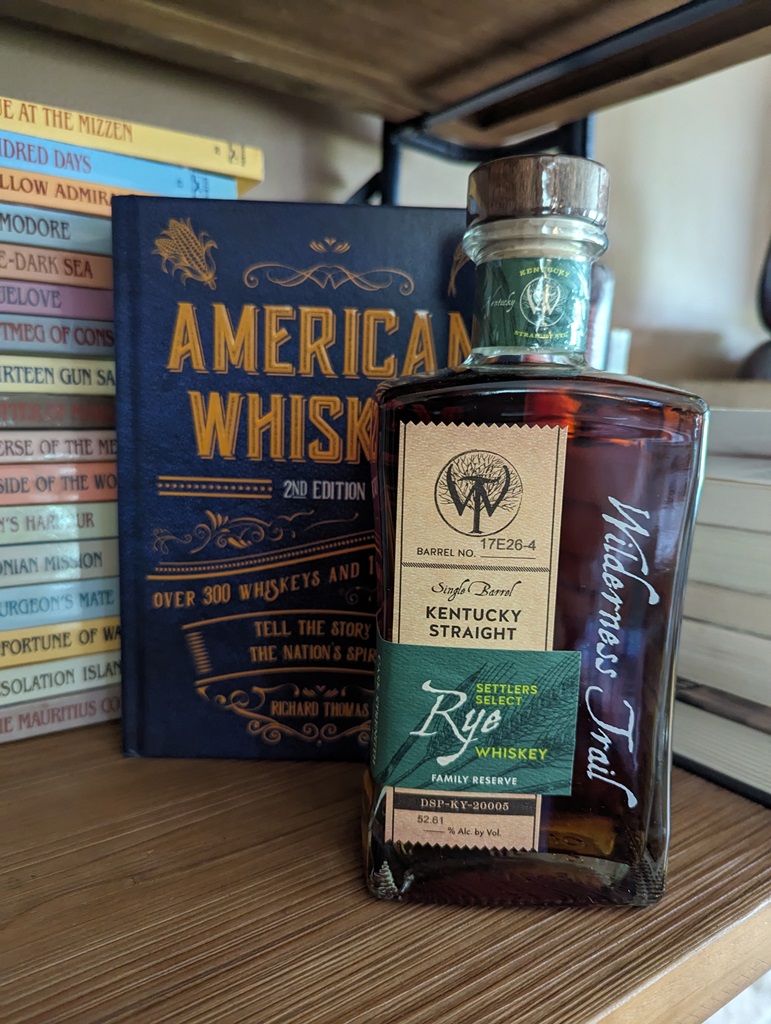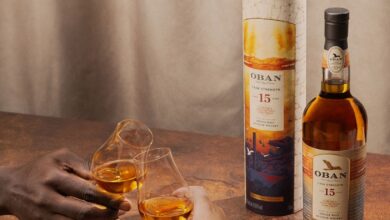James Holland Talks Scotch
By Richard Thomas

(Credit: Jim Wllky Wilkinson)
If you follow our “Talks Whiskey” series, then you know by now that writing and whisk(e)y have a clear intersection. The only real caveat is what side of the Pond the author is from, because that dictates whether he or she is a bourbon or a Scotch drinker.
Devotees of Second World War history documentaries will doubtless recognize James Holland, best known in my experience from his role in Nazi Megastructures. He is also an author of fiction and non-fiction, and his new overview of WW2, beginning with The Rise of Germany, 1939-1941: The War in the West, punctures more myths about the war than any book I’ve read since Matthew Cooper’s The German Army.
All things considered, would it really surprise you to learn than Holland is not just fond of a little whisky, but a devoted Islay man?
RT: So you are a predominately an Islay man. What is your favorite characteristic of that island’s whiskies? The peaty smoke? The “seaspray” aspects? Or perhaps just that they tend to be so big and flavorful?
JH: It’s definitely the peaty smoke. The first I ever tried was Laphroaig, which, although it was obviously whisky, was unlike anything I had ever tasted before: earthy, smokey, massive flavor, but smooth as glass. I loved it instantly and since then have been working my way around the others. Bruichladdich’s Port Charlotte and Bunnahabhain are my favorites. Sitting down with a glass of those—neat and uncontaminated by water or ice—is a treat. Actually, I once heard Simon Cloughlin, the CEO of Bunnhabhain, talking about how he came to first taste it and then eventually take over the distillery; he was originally a wine man, and came across whisky by chance. I’ve never heard anyone articulate the magic of tasting single malts better.
RT: How do you feel about heavily sherried whiskies?
JH: I’ve only tried a few but I did sample a Laphroaig one and wasn’t that keen. I think sherry casking works better with the Speyside whiskies, to be honest.
RT: You mentioned Speyside, but that is a pretty expansive range. So if you are looking at a single malt outside of Islay, what qualities do you want from it?
JH: Well, actually, Bunnahabhain doesn’t use peat, although it is made on Islay, so doesn’t have that classic taste associated with Islay whiskies, but it’s still delicious, so that would be my favorite non-peaty whisky. Otherwise, Bowmore, Aberlour and Balvenie always hit the spot. They’re smooth, subtle, but just lack the excitement and exoticism of Islay whiskies.
RT: You really should try some Japanese whisky some time. The Japanese whisky industry is a lot like the Imperial Navy was in one key respect: both borrowed heavily from British inspiration.
JH: Well, I never have, but I will in that case. And I see Yamazaki make a highly rated sherried whisky too!
RT: You don’t mind bourbon, but as you’ve said, Scotch is always your first choice. In your view, what does Scotch have that bourbon lacks?
JH: I suppose, if I’m honest, it’s probably a little bit of misplaced national preference. Taste is very evocative. I came to whisky first before bourbon, and although I know there are some incredible bourbons out there, when I’m drinking bourbon I’m thinking of rock stars, and old blokes from Tennessee in lumberjack shirts, whereas when I’m sipping Scotch, the thoughts are all about the Highlands and moors and the sea.
I think those things matter; the experience of drinking is different. Actually, I’ve been to the Jack Daniel’s Distillery, which was fascinating. All the people that work there really do look like the men featured in the adverts. And incredibly, it’s made in a dry county. Our guide said, ‘Whisky, whisky everywhere, but not a drop to drink.’
RT: Winston Churchill was famous as a Scotch and soda drinker, if I’m not mistaken. As a historian, can you tell us about any other World War Two figures who were serious whisk(e)y drinkers?
JH: Eisenhower was known to be partial to a good Scotch, but a good number of British commanders were known to enjoy a tipple. After all, a love of a good whisky tended to mark out someone as a man of good taste.
Churchill, of course, was a great cognac drink too. He also consumed vast amounts of vintage champagne and wine as well, although he abhorred people being drunk. He was also famous for always mixing water with his Scotch.
A lot of people drunk whisky during the war whenever they could lay their hands on it. I once edited the diaries of a former tank regiment commander and when in the Middle East and in Cairo they seemed to drink nothing else. I also remember being on Malta with a number of veterans and all night and every night they drank nothing else. It was nothing fancy, just blends like Bell’s and Famous Grouse, and always with water. But they wolfed that down quite happily as though they’d never drunk anything else. I have to admit I got quite into the swing of it.



Advice please. I don’t like smokey or peat flavored scotch. I prefer a mild vanilla taste with little or no burn. Any suggestions?
If you want to stay within the realm of malt whiskey, I’d go for a Speyside or an Irish malt. But if you really wanted to play up the vanilla, head for bourbon.